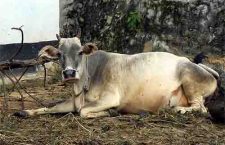The impact of Covid-19 on education has both parents and students of rural UP worried about the future
As schools and colleges continue to remain shut to contain the COVID-19 pandemic, Ram Naresh Yadav is baffled to receive a fee payment receipt from his child’s school, Seth Moolchand Public School, a popular private school in Chitrakoot. “We are unemployed. The business is completely shut. I can’t imagine paying my child’s school dues at this time.” says Ram Naresh, exasperated by his child’s premium private school in Chitrakoot
Despite clear instructions by the authorities to waive off school fees for three months, the unexpected arrival of the fee slip became a matter of concern in the district. Not only did the receipts include unwarranted charges such as the transport fees and the foundation fees, but it also came with a short deadline for clearing school dues for an entire trimester. The unwelcome fee book also mentions a late fee of rupees 50 per day, to be levied until the tenth day beyond the deadline for payment. “How do we pay? Anyway, we were being asked to pay for three months at once. The poor populace has no means to clear the dues right now, only the well-off may be able to continue these kinds of payments,” Vimal Kumar Gupta expresses dissatisfaction over the school’s lack of empathy towards students and their guardians during this particular time.
All educational institutes across the country have been shut to contain the Covid-19 virus from spreading since March 25, the first phase of nationwide lockdown announced by the central government. Last month, the Centre had said that a decision on reopening schools across the country would be taken in July based on the prevailing Covid-19 situation. The novelty of internet and smartphone-based learning and the testimonies of its inaccessibility, nullify the rationale which may be used by schools to justify the legitimacy of the payment of fees across the country. Despite this looming possibility which may be exploited in the benefit of the schools, on 28th April the Delhi High Court observed, “So long as schools are disseminating education online, they are certainly entitled to charge tuition fees,” while dismissing a petition seeking complete exemption of school fees in Delhi during the lockdown period. While constructing the order, it has certainly escaped the court’s notice that access to online education is a by-product of privilege. A similar order concerning a state with an overwhelmingly rural population could prove to be challenging for school-going students and their guardians where internet penetration is likely to be more vulnerable to socio-economic factors compared to the homogeneity of the urban areas.
According to this report in the Hindustan Times, the Punjab and Haryana High Court have also allowed private schools to collect tuition fees “irrespective of offering online classes” to students during the Covid-19 lockdown. A plea has also been filed in the Supreme Court by the parents of children from different States seeking deferment of payment of school fees during the COVID-19 induced lockdown as per this report in the New Indian Express. It’s taken note of the fact that many educational institutes across the country much like the Seth Moolchand school have either hiked the fees and/or started sending notices to pay the entire quarterly fees in advance despite the non-functioning of the schools.
The situation is further exarberated as the virtual space has emerged as the new arena for education during the pandemic and successive lockdowns. Educational institutions across India and even the world have switched to the online mode of learning to ensure that students bear no academic losses due to the closure of schools and colleges. However, the assumption that the virtual space is as much, if not more inclusive as the real space is inequitable and desperately needs a hybrid approach. “No, my kids are not able to study like this,” says Vimal. “Not every person is roaming with a smartphone here. It just means that a few students are studying and the rest are not. Won’t my kids be left behind in their studies?” he adds.
In a country where internet penetration rate stands at 50% along with factors like gender and socio-economic divisions regulating the varied accessibility to the internet, online learning as a one-size-fits-all solution to education during the lockdown is inherently flawed and non-inclusive. Certainly, the fear of being “left behind” woven with the uncertainties of the lockdown, has alarmed the students and guardians alike not only in Chitrakoot, but across the country.
Although about 78 percent of India’s 1.3 billion population has access to mobile phones, teledensity in rural areas is around 57 percent, according to the Telecom Regulatory Authority of India. “These numbers are not conducive to virtual classrooms for the majority,” said Nishant Baghel, from Pratham, a learning organization developing digital programmes in a report by Al Jazeera. “Even in homes with a smartphone, usually owned by the father, it may not be available to the children for learning,” he adds. When you see this from a gender-specific lens, the problem of access becomes even more acute.
Hence, the attempt to replace classroom learning with online learning ignores the harsh realities of the country, where access to the internet and technology depends on socio-economic factors to such a large degree. The current approach to online education catering only to the privileged, especially situated within the context of a pandemic mars the essence of the right to education. What is needed during this period is for policymakers to craft a hybrid approach to education to fit the post-COVID landscape, which unfortunately is speculated to stay until a major breakthrough in the form of a vaccine for COVID-19 emerges.
Trapped in the topsy-turvy months of the lockdown, the guardians of the children going to Seth Moolchand Public School are then understandably anxious. The owner of the school Ashok Gupta denied the dispersal of the fee payment receipts and instead asked us,“Tell me who told you this. Tell me their names.” As the school makes underhanded efforts towards extracting an entire trimester’s fee from their students during a pandemic, Nirikshak Baliraj, the Inspector of schools in Chitrakoot district confirmed “We circulated the instructions for schools to forego school fees including transport fees for three months. If complaints continue, we are bound to take action against the schools disobeying the instructions”. His words certainly bring a sigh of relief to the parents and guardians of the school-going kids of Chitrakoot at the moment, but one can’t say for how long.


